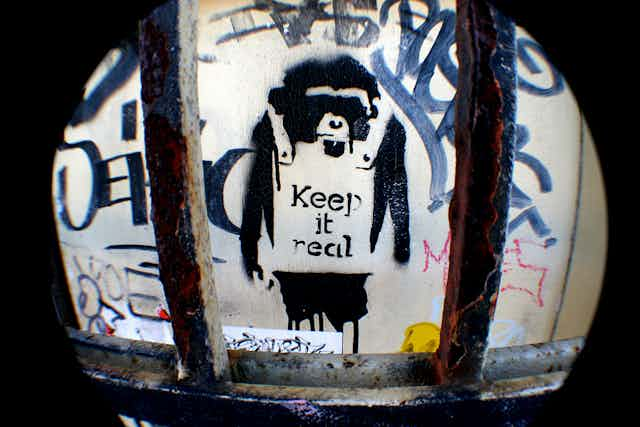When the email notice for The Weekend Conversation landed on Saturday, I was intrigued and slightly startled by the opening teaser from the site’s Science + Technology editor, Paul Dalgarno. He got one of the seven questions wrong in the Australian Academy of Science’s (AAS) recent science literacy survey, and his teaser amounted to a public confession of sorts.
Firstly, Paul asked whether he should be worried. Then he pointed – with kind thanks – to an article published on the site last week by Will J Grant and Merryn McKinnon, which concluded that some of the issues covered by the AAS survey don’t matter much – in the context of overall science literacy – and that the survey results might not matter at all.
The email teaser did its job, in the sense it brought a provocative article to my attention, and Paul then ended with an interesting comment: “Keep it real, Australia.” That set a train of thought in motion.
The big question is what we expect citizens in a modern industrial democracy to know and to understand.
Before attempting to answer that question, two brief notes are in order. In their article, Will and Merryn focus on the notion of isolated facts – which they call “factoids” – as a proxy for scientific literacy; then they ask whether scientific literacy is a proxy for good citizenship.
They argue that the first notion is problematic, and that there’s no evidence for the second notion. This is reasonable as far as it goes, but I’d argue it’s also misleading in a couple of ways:
1) the science literacy survey is far more than a collection of “factoids”
2) the relation between scientific literacy and good citizenship is not that of a one-to-one proxy, but a complex and serious issue of what we must know and understand if we are to be wise citizens. This involves a sense of scientific literacy with respect to issues and principles.
There’s a difference between understanding principles and memorising isolated facts in a collection of “factoids”. To me, it’s a significant problem that some people do not realise that early human beings and dinosaurs did not live at the same time. (Fortunately – or tragically, depending on your viewpoint – “only” 27% of the 1,515 people questioned for the AAS survey believe such co-habitation occurred.)

The principle here is more significant than knowing exactly how dinosaurs lived or what their living arrangements were. This is of a piece with failing to understand that evolution continues, and that we affect the evolution of other species (both of which pertain to questions in the survey).
Maybe the specific answer to these questions will not lead to better policy decisions or to wiser votes for those who determine policy. Nevertheless, what citizens understand about evolution and the inter-relations among species does, for example, have some bearing on the ways over-fishing and coastal zone management place some of the world’s major food sources at risk.
In a similar way, the idea that a year is by definition one revolution of Earth around the sun (the AAS survey asked how long it takes – 59% of respondents knew the correct answer) is far more that a “factoid”. It’s one among several basic issues in understanding how the solar system, and the larger universe around it, works.
Keeping it real
Facts in isolation are meaningless, and a collection of random facts does not demonstrate the basic scientific literacy required of active citizens in contemporary society. This one reason we laugh at Dr. Sheldon Cooper, the brilliant nerd and know-it-all in the television comedy series The Big Bang Theory.

Despite his work as a scientist, Sheldon’s enthusiasm for real science, comic books, and fantasy games seem to be identical, while he can barely manage issues that matter to the rest of us: driving, ordering food, understanding emotions. When I watch Sheldon Cooper, I empathise with the plea:
Keep it real, Australia.
As it happens, though, some scientific issues are very real. The relation between increasing ocean acidification and risk to the ocean’s ecological chain is very real indeed, and will be acknowledged increasingly as such as the dwindling fishing stock leads to higher prices and reduced food supplies.
These are a few among the many apparently minor facts that take on deeper meaning and significance when we see them in a network of the relations among physical, chemical, environmental, technological and social systems that comprise the world.

Basic scientific literacy is required if citizens are to understand how the world works as a system. No short quiz will measure true understanding in any depth, but the Science Literacy in Australia survey is a reasonable proxy for key principles. These principles affect the decisions we make as citizens about policies and issues.
They are also vital to our success in jobs that require an understanding of how things work, and why.
An advanced industrial democracy requires more science literacy of its citizens than did the agrarian democracy that Australia once was.
If we are to ensure Australia’s future prosperity, if we are to leave this nation a better place than it was when we got here by birth or by immigration, we should care very much indeed about basic science literacy and the principles science brings to light.
Further reading:
Australians seem to be getting dumber – but does it matter?
Glum and glummer: Australia vs US on science literacy results

